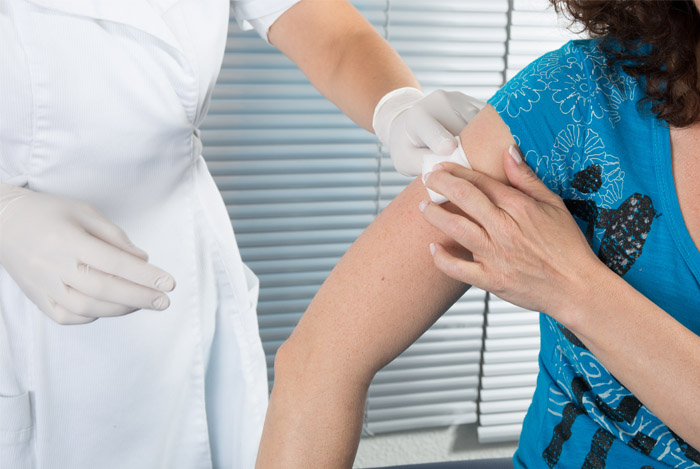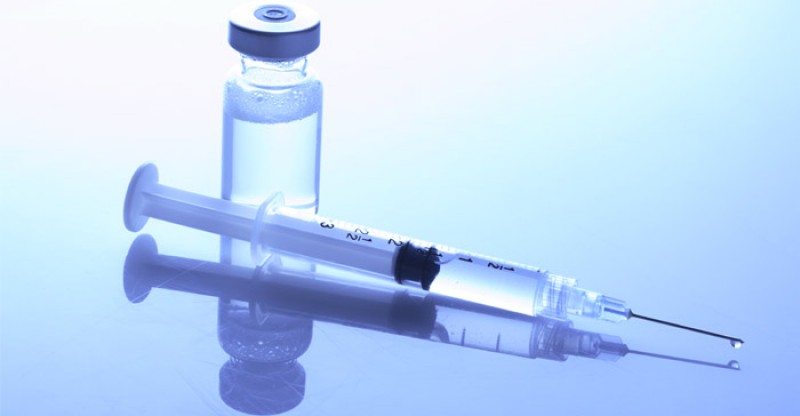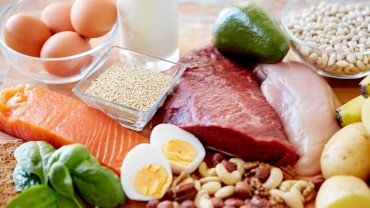Does the HCG Diet Really Work?
Every year there seems to be a new diet, eating trend, or weight loss program designed to help us lose weight efficiently.
Examples vary from cutting out certain foods or implementing supplements to changing your current diet or starting a new exercise regimen.
It’s hard to keep up with all the latest trends: Atkins, South Beach Diet, Paleo, vegan, Pescetarian – just to name a few.
The truth is that almost all diets strive to achieve the same goal: a better health regimen, a more nutritious meal intake, and a fitter body.
Like with all things, there are both positives and negatives to take into account.
Unfortunately, some diets have a single focus – weight loss; this is not always the healthiest option and the side effects can cause more harm than good.
The pressure to be thin can be very high and people are willing to pay the highest price to achieve the fastest results.
One diet that claims to result in shedding between one and three pounds daily is the HCG diet.
With such extreme results, many people are eager to try their luck with this very rigid and difficult diet.

What is the HCG Diet
The HCG diet came into existence in the 1950’s when physician Albert Simeons noted that underweight women could give birth to normal-weight babies.
Human Chorionic Gonadotropin (HCG) is a hormone the female body produces when an embryo has undergone implantation.
Some women may be aware if its existence because it is the chemical excreted and detected by a pregnancy test.
During pregnancy, HCG plays several important roles. (1)
The function that brought HCG to Dr. Simeons’ attention is the theory that it regulates the hypothalamus.
This portion of the brain is responsible for controlling hunger, tiredness, body temperature, and thirst.
Dr. Simeons believed that if the body received injections of HCG, it could be tricked into using what he called “the Fat Bank”—the body’s stored fat deposits — while eating very few calories.
While patients consumed much less food than recommended, HCG told the hypothalamus that it is full and the body responded by using stored fat for energy.
When the body goes into what is called “starvation mode”, it usually turns to using up one’s lean muscle.
However, HCG stops the body from going into starvation mode.
Simeons started to prescribe injections of HCG after noting that it stimulated weight loss that did not include losing lean muscle (as is common with many diets that require very low-calorie intake).
Simeons claimed that his HCG diet could cure obesity by helping you lose between one and three pounds of weight daily by attacking stored fat.
This hormone works to metabolize the subcutaneous fat that is hard to remove.
Subcutaneous fat is the fat beneath the skin and is stored all over the body.
When you exercise or have short periods in which your heart rate is boosted, your body burns visceral fat.
In such a scenario, along with a very minimal caloric intake, a body’s weight would drop quickly.

Dissecting the Diet
The diet itself is a calorie-restricted meal plan in which dieters eat very few fats and carbs.
The few calories consumed are mostly protein, along with a tiny amount of the HCG hormone in the form of injections, drops, or pellets.
HCG tells your body to burn the stored fat when you are eating less, as well as informing it that it is not hungry.
A normal diet usually consists of 1800 to 2200 calories a day.
The HCG diet can be compared to eating only one small meal, spread throughout an entire day.
The original Simeons protocol was very strict with many particular rules.
These rules were: no massages, a very limited amount of beauty essentials and makeup, no butter or oil, only one tablespoon of milk a day (usually in one’s coffee), no sugar, salmon, eel, tuna, herring, dried or pickled fish, and very limited amounts of gluten.
A typical breakfast was coffee or tea, unsweetened. Lunch and dinner were one of the following choices:
- 100g boiled or grilled beef, white fish, chicken breast, lobster/crab/shrimp, or veal.
- One of the following: spinach, chard, chicory, beet-greens, green salad, tomatoes, celery, fennel, onions, red radishes, cucumbers, asparagus, cabbage.
- One breadstick or piece of Melba toast.
One snack consisting of an apple, orange, or a handful of strawberries or one-half grapefruit was also permitted.
In addition, the dieter was supplemented with 23 injections a day for a 26-day period.
Dr. Simeons made exceptions for very obese patients, saying:
“When a patient has more than 15 pounds to lose, the treatment takes longer, but the maximum we give in a single course is 40 injections, nor do we, as a rule, allow patients to lose more than 34 lbs. (15 Kg.) at a time.
The treatment is stopped when either 34lbs. have been lost or 40 injections have been given.
The only exception we make is in the case of grotesquely obese patients, who may be allowed to lose an additional 5-6 lbs. if this occurs before the 40 injections are up.”
While there have been a few modifications to the diet since the 1950’s with the allowed calorie intake rising from 500 to 1000, it is still based on organic vegetables, meats, and fish.
The emphasis is still on low fat and carb consumption, mostly protein- and fiber-rich foods, and no alcohol, dairy or sugar.
Meals portions are very small: fruit for breakfast, as well as a small amount of protein and vegetables for lunch and dinner.
The allowed snacks are fruit and water.
What the FDA Thinks about It
Currently, many scientists believe that the extreme weight loss in the diet is associated with the restricted intake of 500-1000 calories and not HCG.
Firstly, the amount of 500-1000 calories is far below the recommended caloric intake and is deemed a health risk.
Secondly, the FDA ran Simeons’ tests and found that there was little evidence that supported the diet’s claims.
After many complaints by the FDA, Simeons released a statement in 1976 explaining that there were no studies which provided substantial evidence as to HCG promoting weight loss.
Neither was there any evidence that a calorie-restricted diet would be easier to handle due to appetite suppressants in the injections.
“The FDA does not evaluate homeopathic drug products for safety or effectiveness,” explains Elisabeth Walther, a FDA pharmacist.
“There is no scientific evidence that supports homeopathy as effective.
Those that meet certain conditions set by the FDA can be marketed…HCG is not on the list and, therefore, cannot be legally sold as a homeopathic medication for any purpose.” (5)
Because the FDA has not approved the hormone being used as a drug for weight loss, deeming it ineffective, there has been ambiguous information available regarding HCG.
Many of the over-the-counter and Internet products of HCG may not contain any of the hormones.
Quite often there are “homeopathic HCG” ingredients that contain the minuscule amounts.
Elizabeth Miller, a director of the FDA’s Division of Health Fraud and Non-Prescription, says: “These products are marketed with incredible claims and people think that if they’re losing weight, HCG must be working.
But the data simply does not support this; any loss is from severe calories restriction. Not from the HCG.” (5)
HCG Availability
Presently, to get HCG injections, you must have a prescription from a doctor.
HCG as a fertility aid is legal and this is, currently, how the drug is being used in the medical world.
Many diet programs have switched to making different forms of HCG.
Non-prescription oral drops are available; they utilize a homeopathic form that is said to metabolize body fat.
However, these drops do not contain the actual hormone; they contain ingredients that mimic the effect HCG has on the metabolism.
Like in the case of injections, the bloodstream absorbs the oral drops.
One example is Nutra Pure, who claims that their “homeopathic drops are derived from electronically imprinting the HCG hormone’s fat-burning properties onto a colloidal mineral water base.”
Nutra Pure homeopathic HCG drops contain ingredients that produce the metabolic effect of HCG, but not the Human Chorionic Gonadotropin hormone itself.
Nevertheless, if you look at the print on the bottom of their website, you will see that they are listed as “FDA registered”, not “FDA approved”.
However, even “homeopathic” HCG is prohibited.
David Vladeck, director of the FTC’s Bureau of Consumer Protection says: “Deceptive advertising about weight loss products is one of the most prevalent types of fraud. Any advertiser who makes health claims about a product is required by federal law to back them up with competent and reliable scientific evidence.”

Side Effects
As one can imagine, with serious diet restrictions come many adverse side effects from both the diet and the hormone.
The side effects are similar to those of women experiencing morning sickness including headaches, cramps, nausea, constipation, and queasiness.
The more extreme symptoms are an infection, male breast enlargement, leg cramps, hair thinning, and blood clots.
Many of the side effects are caused by extreme dehydration that comes from eating so little (although dieters are encouraged to drink lots of water).
Websites selling the homeopathic HCG claim that by drinking water, you will reduce these side effects.
However, as mentioned before, restricted calorie diets can cause the body to go into starvation mode.
Furthermore, while the diet claims to have no effect on one’s lean muscle mass, it can lead to heart failure.
Dr. David L. Katz, director of the Yale-Griffin Prevention Research Center in Connecticut, said: “the body leeches protein muscle from the heart…which can lead to ventricular tachycardia and sudden cardiac death.”
Like any quick fix, the energy must be taken from somewhere.
As a result, unfortunately, body organs are the ones suffering from extreme diets.
Additionally, since HCG is used as a fertility treatment, many women have reported becoming pregnant while on the diet.
In Simeons’ manuscript, he noted many cases in which his female patients became pregnant.
Because Dr. Simeon was the only physician to provide any results demonstrating that HCG worked and was convinced that his treatment was successful, there are no other trials to show evidence of possible risks.
However, there are many testimonies.
According to US Health News, there was at least one report to the FDA of a person developing a possibly fatal blood clot in the lung. (4)
Lori Hill, an active soccer referee, says she lost over twenty-six pounds on the HCG diet in a 26-day cycle.
However, after stopping the diet, not only did she gain all of the weight back, she put on an additional fifteen pounds.
While she lost fat stored in her thighs, she said she felt sick and lost all her energy.
She went from refereeing soccer to not being able to make it to the second story in her house.
Her muscles could not support any physical activity by the final week of the cycle.
In addition to gaining more weight, she admits that her body’s nutrition profile was ruined, saying: “You’re tricking your body into letting you starve without feeling any major hunger. What you’re doing to your body just isn’t worth it.”
Are There Actual Benefits?
Advocates of the HCG diet claim the hormones create an anabolic state – the phase in which the body builds muscle, instead of the catabolic – the phase when muscles begin to break down.
Other reports say that because the body is using less energy to digest food, dieters feel an increase in energy, their blood sugar stabilizes, and they experience improved sleep.
For men taking HCG, there has been evidence of increased testosterone.
As is the case for women, HCG is sometimes prescribed to men experiencing infertility.
The increase in testosterone is correlated to muscle growth and water retention.
Combined, these side effects can give the impression of swollen muscles and result in men believing they are not losing muscle while taking HCG.
However, once they stop, their bodies will return to their previous state.
It’s not just the FDA that is against the diet.
The British Journal of Clinical Pharmacology meta-analysis concluded: “there is no scientific evidence that HCG is effective in the treatment of obesity; it does not bring about weight-loss of fat-distribution, nor does it reduce hunger or induce a feeling of well-being.”
Nevertheless, proponents of the diet still say it is a great way to reset your body’s hypothalamus, break food addictions, and get accustomed to small-portioned meals.
What is the Cost?
You would think that a diet that cuts your calorie intake by 75% would be less expensive than the money you spent on food prior to the diet.
However, an initial consultation with your doctor may cost up to $150.
An injection can cost up to $10 and is to be received up to 23 times a day for a recommended 26 days of treatment.
There have been dieters who have used the hormone for longer, but this is not recommended because the body can develop tolerance.
Some diets advise other supplements and suppressants, as well as vitamins and minerals.
It is quite possible that your doctor may suggest another round of the diet.
In this case, the price can easily reach a few thousand dollars.
There are many Internet-based companies that sell homeopathic HCG in the form of injections and drops.
They vary in price anywhere from $30 to $600 for a 26-day supply.
However, it is vital for consumers to understand that nobody but a qualified physician can sell HCG.
If the seller isn’t one, their product is either a mimic hormone, a homeopathic HCG, or is illegal.

The Studies
There have been numerous studies conducted to test if HCG plays a major role in weight loss or if the weight drops due to the severe reduction in calories.
A study in 1963 focused on two test groups of 10 women who were considered to have severe chronic obesity.
Both groups were placed on a diet of 550 calories per day.
One group was daily injected with shots of HCG while the other received a placebo.
At the end of 45 days, both groups lost an average of twenty pounds.
Both groups admitted to experiencing hunger.
The conclusion was that there was no difference between the women who received HCG and the women who did not.
The weight loss was a result of eating about three times less than the recommended daily calorie intake.
FDA nutritionist Shirley Blakely says: “Living on 500 calories a day is not only unhealthy—it’s hazardous.
You are at increased risk for side effects that include gallstone formation, an imbalance of electrolytes that keep the body’s muscles and nerves functioning properly, and an irregular heartbeat.”
In 1981, German physicians replicated earlier research and found negative results with four out of ten studies in which one control was without HCG and the other was with injections.
The studies confirmed all patients experienced weight loss, but no difference in the way they lost weight or felt during the fast was found. (8)
The American Society of Bariatric Physicians warns:
“Numerous clinical trials have shown HCG to be ineffectual in producing weight loss. HCG injections can induce a slight increase in muscle mass in androgen-deficient males. The diet used in the Simeons method provides a lower protein intake than is advisable in view of current knowledge and practice. There are few medical literature reports favorable to the Simeons method; the overwhelming majority of medical reports are critical of it.”
One of the main criticisms is “What do you do after the diet?”
Many people on forums and blogs admit to regaining the weight, with some saying they gain even more, while others disclose that they go back to the injections.
The body is usually stripped of its vitamins and minerals after fasting and goes back to storing fat.
Many people look for a quick fix and forget that they cannot sustain the HCG diet forever.
Advocates of the diet say they learn to portion their food and avoid unhealthy, processed foods.
Another trial randomly selected a group of patients to follow the diet, while another group was supplemented with a daily placebo saline injection.
The protocol was followed for six weeks and it was found that no significant difference in weight loss was achieved.
A different trial had patients follow the diet with placebo saline injections or the diet alone.
The placebo group, on average, lost 22.4 pounds compared to 17.7 pounds lost by the diet-only group.
The saline patients also said that they found themselves to have way more energy than during the other times they had done the diet.
Variations of the Diet
Simeons developed the original HCG diet, which was published in his book “Pounds and Inches: A New Approach to Obesity” in 1954.
Since then, there have been many variations.
One of the more famous is “The Weight Loss Cure “They” Don’t Want You to Know About” by Kevin Trudeau.
Published in 2007, the book agrees with Simeons, saying that the hypothalamus controls hunger with the use of the HCG hormone.
Since the FDA already made HCG illegal for use other than to support infertility, Trudeau was warned and, later on, fined.
He was later convicted of making deceitful medical advice without any medical training. (10)
Claims in the book were falsified, making the diet seem easy and inexpensive even though the diet plan is actually very difficult and the injections are illegal.
Trudeau was fined more than $37 million in 2008.
There are an abundance of books published about the HCG diet and its recipes, including: the HCG Weight Loss Cure Guide, the HCG Diet Book of Secrets, HCG Diet Gourmet Cookbook: Over 200 “Low Calorie” Recipes for the HCG Phase, the hCG Diet Quick Start Cookbook: 30 Days to a Thinner You, and, for the on-to-go very-low-calorie dieter, the Pocket Guide to the HCG Protocol. (11)
Conclusion
Despite the many warnings against low-calorie diets, as well as the precautions of the numerous side effects, the HCG diet is still popular within the dieting community.
There is still a large amount of books being published, as well as many Internet sites selling homeopathic drops and pellets.
There are thousands of blogs and forums devoted to HCG.
Regardless of the large amount of FDA research against the hormone, it is not losing its followers.
The biggest concern is depleting your body of nutrients, as well as its build-up of electrolytes and immune system while drastically cutting calories.
Furthermore, the side effects are quite harmful and extreme.
If you are looking for a sustainable and healthy life choice, the HCG diet is not the answer.
When dieting, it is important to think of your long-term health and not your short-term weight.
Quick fixes are attractive and appealing, but, more often than not, they don’t deliver long-lasting results.
HCG is very expensive for a treatment that, as the FDA and most doctors conclude, does not make a difference in weight loss.
If you like the idea of losing weight, eating healthier, and exercising, there are many meal plans and regimens that can help you to lose weight safely and keep it off.
If many doctors and specialists advise against something, then it is likely not the best choice.
FDA Compliance
The information on this website has not been evaluated by the Food & Drug Administration or any other medical body. We do not aim to diagnose, treat, cure or prevent any illness or disease. Information is shared for educational purposes only. You must consult your doctor before acting on any content on this website, especially if you are pregnant, nursing, taking medication, or have a medical condition.
HOW WOULD YOU RATE THIS ARTICLE?







Thanks for the research. I didn’t know this diet is such a junk…
Hello Leo! You’re welcome!
Was about to try this diet out. Not so sure anymore..
Hello Margaret! Think twice or more before following this diet!
It’s funny how there’s so little concrete evidence which supports this diet’s claims.
Hi Valerie! It’s a common phenomenon when there are lots of bald claims and no evidence to back them.
My friend tried this and she had swelling in her ankles and legs.. it’s not worth the risk. You can lose a lot of weight through your diet alone. The 3 week diet works really well, there’s a good blog post on it if you google search “19 pounds in 3 weeks”
My verdict is avoid HCG like the plague.
Hello Ashna! Hope your friend is fine now! And yes, HCG diet must be avoided!
I wonder if HCG diet is safe for men?
Hello John! No, it’s not safe even for men:)
I tried HCG diet. And it really works. Works for losing weight. But I felt tired all the time, I lost my hair, I couldn’t exercise at all as I was exhausted. The joy from losing weight was nothing comparing to my condition…And after quitting the diet, my pounds came back to me very fast. So it’s up to you whether to try this diet.
Thank you for sharing this information! It’s very-very important to know how detrimental this diet can be to our health! I’ve read so much about different diets, and I understood that the only way to lose weight for sure is regular exercise and healthy diet all the time.
I have completed a round and am in the process of another round with HCG. Even after loading, I’m under my last injection weight after shedding 45 pounds with a additional 6 pounds lost during the 3rd and 4th phases. I decided to do the 2nd round to get near my normal weight of 160-165. It does make you more aware of what you eat and how much. Most people don’t think of the number of calories they take in, much less where the calories come from. I followed the protocol to the letter and found the results exactly as described in Dr. Simeon’s book “Pounds and Inches”. I haven’t any side effects, and know that the process of abnormal fat utilization to be true as I had blood work done for a yearly check up that showed a high fat level and when I had it checked again after finishing the injections, my blood was normal. I suffered no hunger, other than when I needed to eat. My stamina was great. If you follow the protocol with no deviation, from my experience, you’ll be happy with the results. I have maintained my weight for 3 months after finishing my 1st round. You can’t cheat on this, and it be effective. You can’t go back to old eating habits that contributed to your issues and not expect to gain weight back. The boring staple of food you take in for the 500 calories is for a short period of time, the daily trip to the scales makes it worth it. I’m not trying to sell this diet to you or anyone. I am a satisfied participant in the protocol. I got out of it what I was looking for, fat loss. It does work.